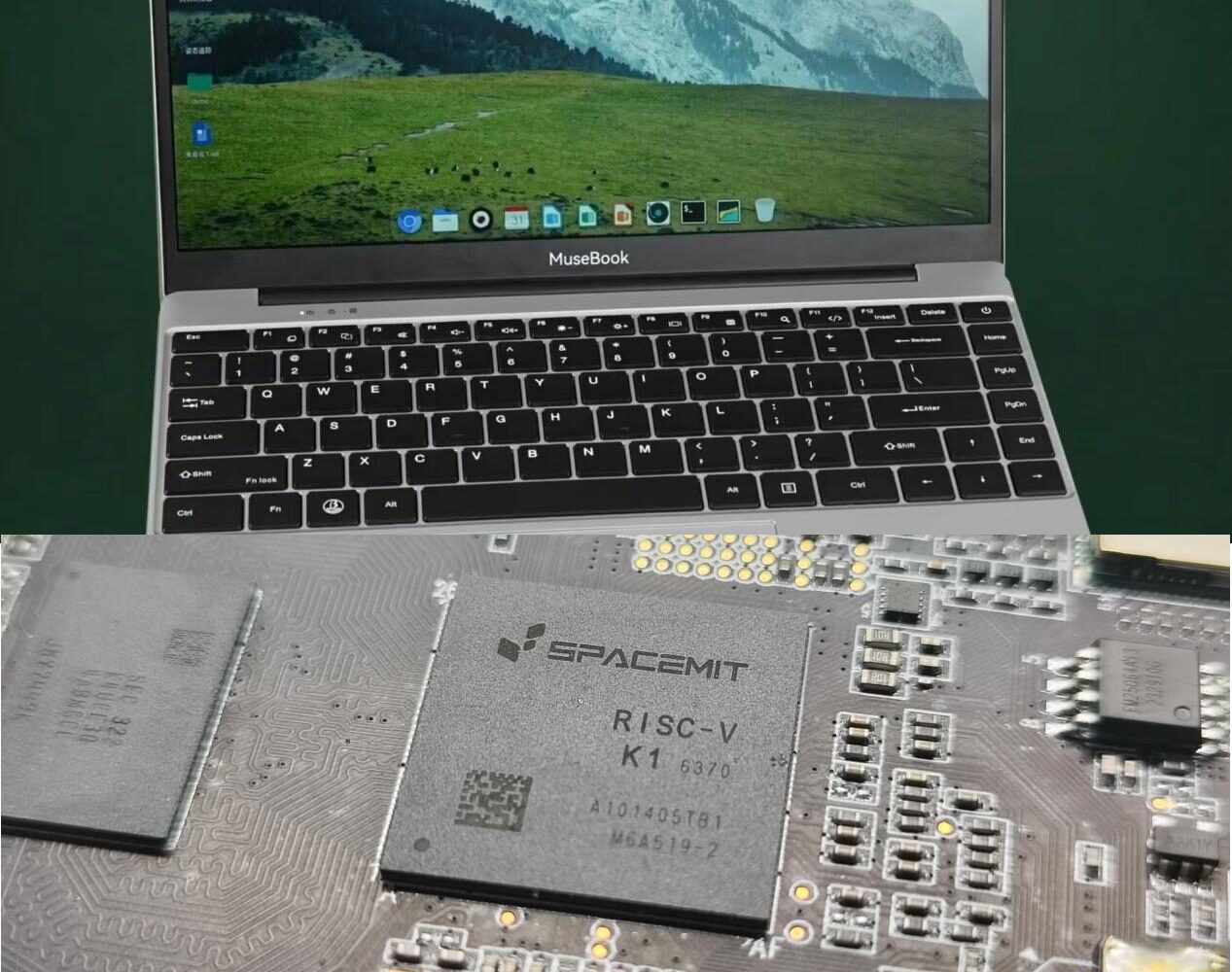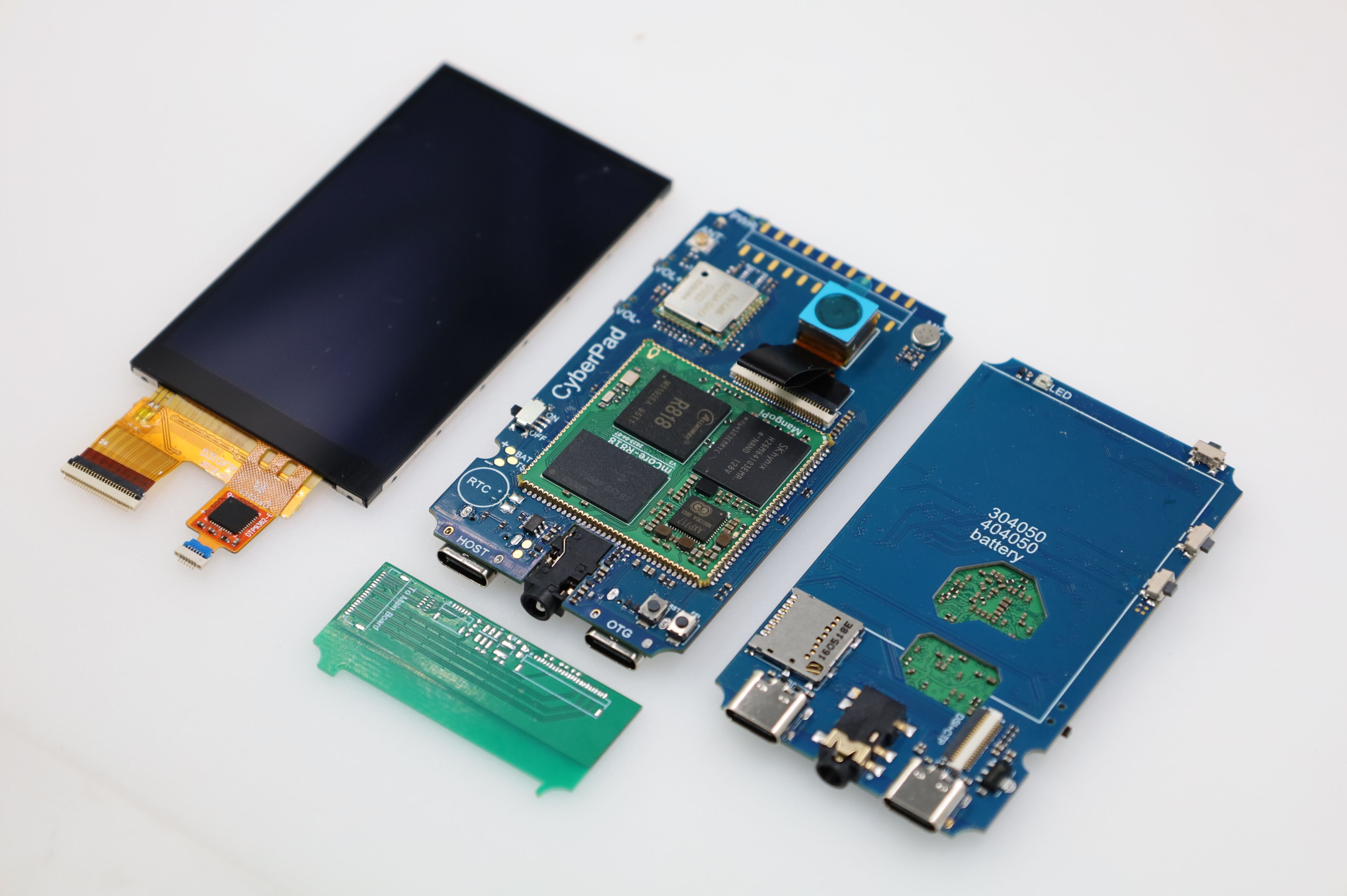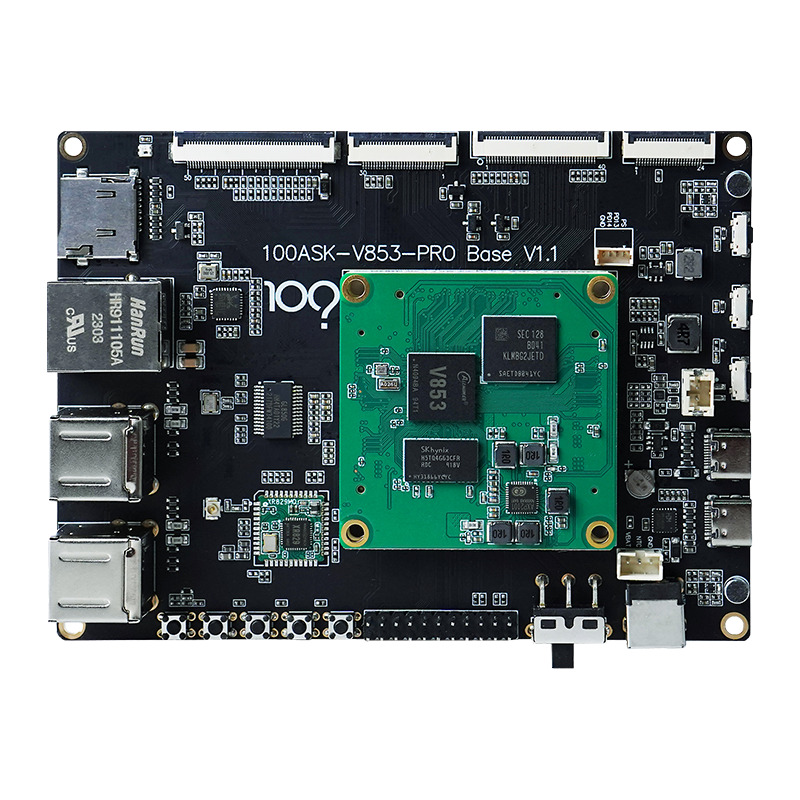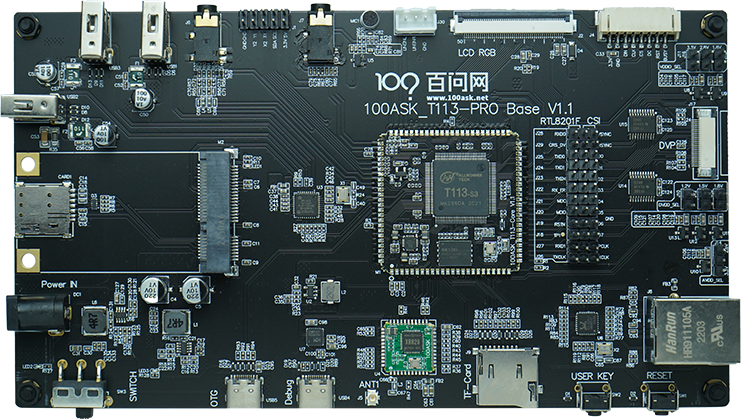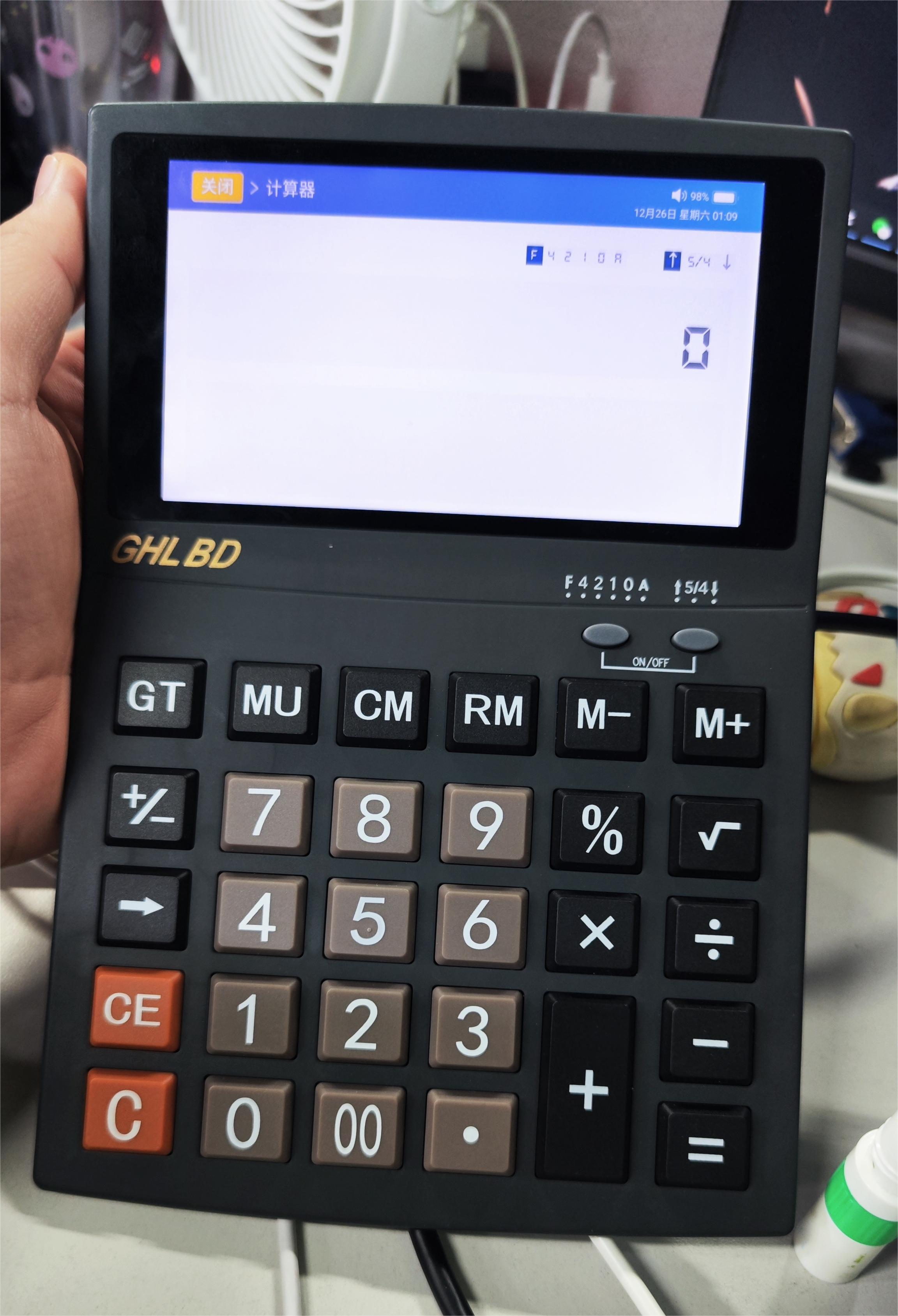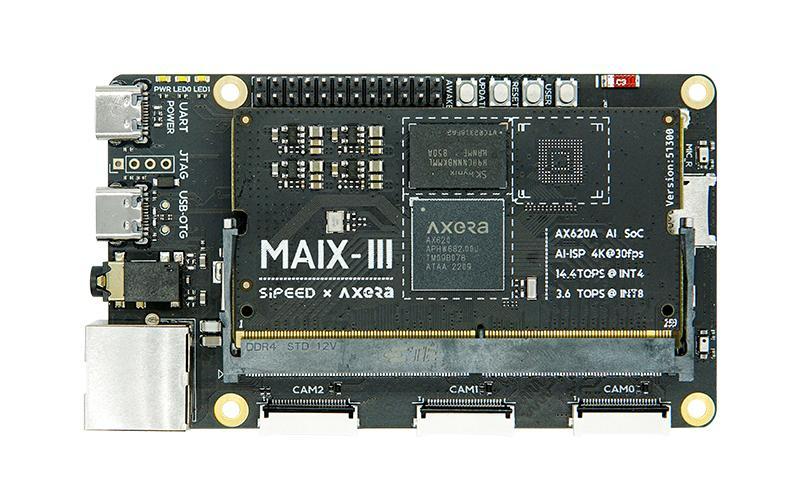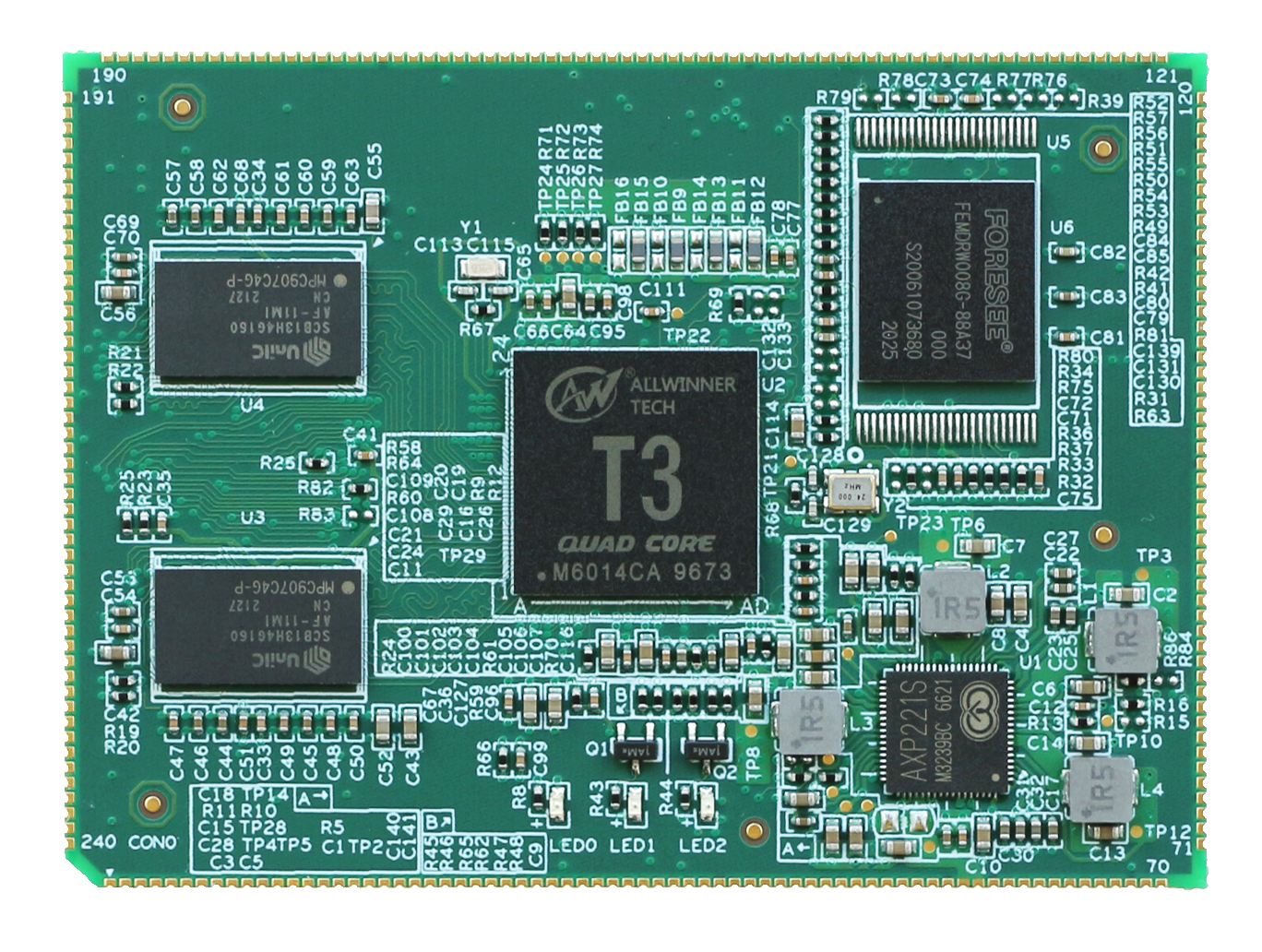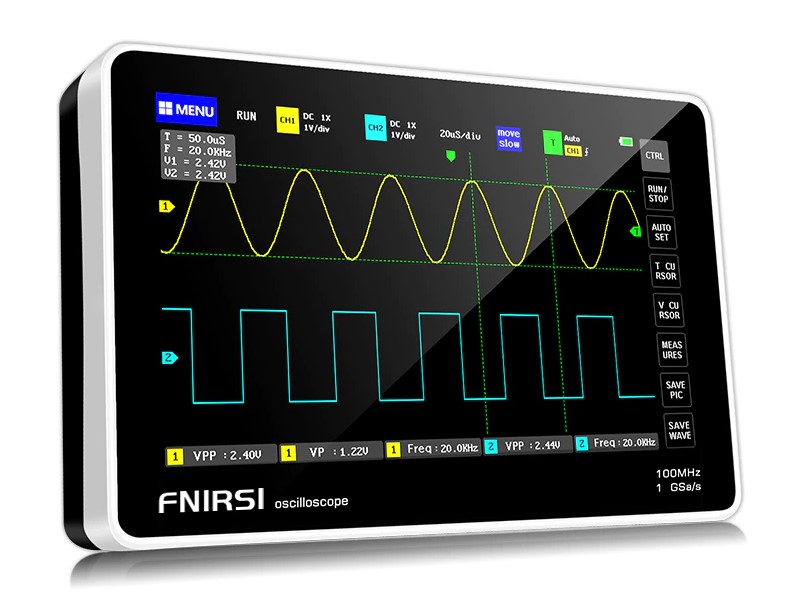SpacemiT, a chip design company from China with RISC-V as its core technology, recently unveiled the Muse Book laptop based on the K1 octa-core RISC-V chip. Unlike our daily laptops, it has many interesting unique features and is mainly sold to hardware engineers and DIY enthusiasts. This Muse Book runs the Bianbu OS operating system based on the Debian distribution and optimized to run on the SpacemiT K1 octa-core RISC-V SoC. Let’s first take a look at its external interfaces. On the left side of the laptop, there are two USB Type-C interfaces, a USB 3.0 Type-A port, a 3.5mm headphone jack, a microSD card slot, and a reset pinhole. The 8-pin header on the right side of the laptop is quite interesting, and SpacemiT hopes the Muse Book can become one of the most convenient hardware development platforms for RISC-V. In addition to the power pins, users will find […]
MangoPi mCore-R818 module powers CyberPad 3.1-inch handheld android “tablet”
mCore-R818 is the first time that MangoPi adopts the design combination of a core-lite module and a carrier board. As its name suggests, it is an AllWinner R818 SoM whose SoC integrates an Imagination PowerVR GE8300 GPU for UI rendering, can drive MIPI DSI, LVDS, and RGB displays, as well as cameras through a MIPI CSI interface, 8MP/5MP/2MP interfaces. The Allwinner R818 system-on-module powers a feature-rich carrier board as well as an upcoming Cyberpad Android “tablet” with a 3.1-inch display. MangoPi mCore-R818 The package design of the processor itself is small, so the MCore-R818 core board is only 3x3cm in size, but still contains four components with the Allwinner R818, the eMMC flash, LPDDR4 memory, and the AXP717 PMU. MangoPi provides two hardware configurations: 2GB DDR with 16GB eMMC flash, and 4GB DDR with 32GB eMMC flash. MCore-R818 Core Lite Specifications: SoC – Allwinner R818 CPU – Quad-core Arm Cortex-A53 […]
100ASK-V853-Pro – A feature-rich Allwinner V853 board designed for AI vision applications
The 100ASK-V853-Pro board is a development kit consisting of an Allwinner V853 system-on-module board (SoM) and a feature-rich carrier board with a large number of interfaces. Allwinner V853 supports up to 1TOPS of NPU computing power and is mainly for AI vision application development. The core board contains a DDR and eMMC as well as a PMU chip (AXP2101) and is connected to the carrier board through a board-to-board connector. All the functional resources of the V853 are drawn out through the carrier board. The carrier board comes with 2-channels CSI camera interfaces as well as RGB and MIPI DSI display interfaces. Although 1 TOPS of AI computing power is not outstanding, the NPU can still be used to accelerate AI vision applications at the edge. The board also comes with four USB 2.0 ports (two Type-A, two Type-C), an 100Mbps Ethernet port, a 22-pin header for expansion, and five […]
100ASK-T113-Pro Allwinner T113-S3 industrial board, and Allwinner T113-S4 with 256MB DDR3
Last year, Jean-Luc introduced the T113-S3 processor and the small MangoPi-Dual board with T113-S3. This time, I will introduce a development board with relatively rich resources, the 100ASK-T113-PRO, which consists of a core board with T113-S3 and a carrier board with a large number of peripheral interfaces, and the upcoming Allwinner T113-S4 SoC with 256MB DDR3. 100ASK-T113-Pro Allwinner T113-S3 industrial board While the T113-S3 and D1s/F133 RISC-V processors are pin-to-pin compatible, the T113-S3 is a dual-core Arm Cortex-A7 processor with HiFi4 DSP, CAN interfaces added (CAN is not mentioned publicly, but can be seen in the T113-S3 Datasheet) and 128MB DDR3 on-chip memory. 100ASK-T113-PRO preliminary specifications: T113-S3 Core Lite: SoC – Allwinner T113-S3 CPU – Dual-core Arm Cortex-A7 with 32 KB L1 I-cache + 32 KB L1 D-cache per core, and 256 KB L2 cache DSP – Single-core HiFi4 Memory – 128 MB DDR3 (SIP) Storage – 16MB SPI NandFlash […]
GHLBD Android calculator mini review – An Allwinner A50-based Android 9.0 calculator
I found this GHLBD calculator on a platform selling second-hand electronic products. Three labels of this product appeal to me: “Calculator”, “Android 9.0” and “Allwinner A50“. If you only look at the appearance, this calculator is not much different from that of ordinary calculators, but the Android operating system is running on it and the screen tells me that it is definitely not an ordinary calculator. When I bought it, I only spent 69 RMB ($10 US). I didn’t really have a use case for it, but curiosity drove me to buy one. I decided to introduce it and disassemble it to check out the hardware design. Function demonstration of GHLBD calculator Press and hold the ON and OFF keys on the keyboard to turn on the calculator. The Allwinner A50 processor icon and Android logo show up in the boot animation. Here, you can preliminarily confirm that the promotional content […]
Sipeed Maix-III devkit features AXERA AX620A SoC for AI vision applications
Sipeed Maix-III development kit is composed of a core board equipped with AXERA AX620A AI processor and a carrier board exposing several interfaces such as Ethernet, USB, and camera connectors. resources. As noted in our earlier article about the AXERA AX620A chip, it is a quad-core Arm Cortex-A7 chip with an NPU offering a maximum of 14.4 TOPS @ INT4 or 3.6TOPSs @ INT8, and as such, this development board mainly targets AI vision applications. The board is an upgrade to the earlier Speed Maix II with an Allwinner V831 processor. Thanks to the low power consumption of the AXERA AX620A SoC, the Sipeed Maix-III board can be powered directly through its USB port as the system consumers 5W (5V@1A) with the carrier board, the system-on-module, WiFi, Ethernet, a camera, and a 5-inch display. Using the display does not require am additional heatsink or fan, nor does it require an […]
Allwinner T3 automotive-grade processor powers industrial-grade SoM
Allwinner T3 is a quad-core Cortex-A7 automotive-grade processor that supports a wide industrial temperature range of -40°C to +85°C. After comparing the specifications of Allwinner T3, I think it is the same as Allwinner A40i, as Allwinner has different business units and the T-series is for the automotive-grade market, while the A-series has historically been for the tablet market, but is now also used in the industrial-grade market. Tronlong SOM-TLT3 and SOM-TLT3-B are Allwinner T3 system-on-modules (SoM) of Allwinner T3. Both modules have basically the same specifications but the SOM-TLT3 comes with castellated holes for soldering to the carrier board, while the SOM-TLT3-B features board-to-board connectors. Tronlong SOM-TLT3 / SOM-TLT3-B specifications: CPU – Allwinner T3 quad-core Arm Cortex-A7 @ 1.2 GHz with 32KB L1 I-cache + 32KB L1 D-cache, 512KB L2 cache. GPU – Arm Mali-400 MP2 with support for OpenGL ES 1.1/2.0, Open VG 1.1 Memory – 1/2GByte DDR3 […]
FNIRSI 1013D teardown and mini review – A portable oscilloscope based on Allwinner CPU & Anlogic FGPA
The FNIRSI 1013D is a dual-channel flat-panel oscilloscope with a rich set of features. It is cost-effective and useful to people in the maintenance and R&D industries. Although it has been on the market for a few years, I purchased one, and I decided to introduce it and disassemble it to check out the hardware design. FNIRSI describes its oscilloscope as “small and portable”, so I assume it should include a lithium battery, a TFT LCD screen, a processor to handle the display, and another chip to process the digital signals. Let’s take it apart first to find out. FNIRSI 1013D oscilloscope unboxing FNIRSI 1013D package content: 1x FNIRSI 1013D oscilloscope 2x 100MHz matching probes (1X and 10X) 1x USB cable 1x Charging adapter 1x Instruction manual The FNIRSI 1013D adopts a 7-inch 800 x 480 resolution color TFT LCD with a capacitive touch screen. There are two input channels […]


